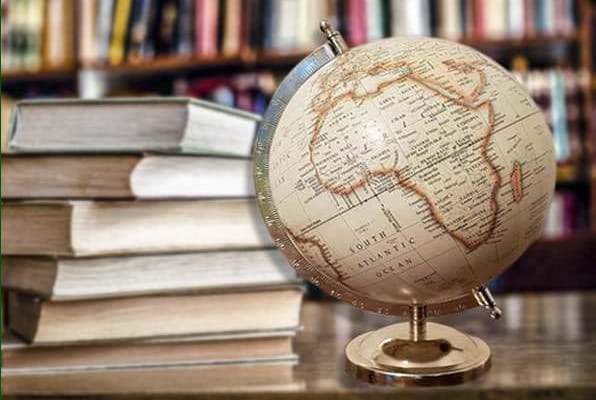In Summary
- The African Continental Free Trade Area (AfCFTA) aims to increase intra-African trade by around 52% by 2035, boosting local industries and potentially creating nearly 30 million jobs.
- Africa’s anticipated economic growth rate for 2025 is about 4.1%, surpassing the global average and showcasing the continent’s growing influence in global affairs.
- In 2023, Gulf countries invested over $53 billion in Africa, focusing on infrastructure, mining, and agriculture, which are transforming the continent’s development landscape.
Deep Dive!!
Africa is proactively shaping its economic landscape through strategic initiatives and enhanced regional collaboration. In 2025, the continent aims to propel growth through robust trade agreements, expanded global partnerships, and significant infrastructure investments.
Reports from the African Union and World Bank indicate that Africa’s expected economic growth of 4.1% in 2025 surpasses the global average, demonstrating the continent’s growing resilience, creativity, and clout in international markets.
Today, African nations are not merely reacting to global trends — they are establishing new benchmarks for economic advancement. This article explores the top 10 geopolitical trends transforming Africa’s economies in 2025, illustrating how African countries are turning potential into enduring growth.
10. Infrastructure and Energy Partnerships
Africa is hastening infrastructure development to facilitate economic growth. In 2025, critical projects involving ports, roads, power facilities, and digital networks are advancing across the continent. Renewable energy is a primary focus; despite Africa’s vast solar and wind resources, it previously attracted only 2% of global clean energy investments. Now, significant solar farms, hydroelectric plants, and wind energy projects are underway with international funding. Enhancing infrastructure not only reduces business expenses but also fosters industrialization and regional connectivity, positioning Africa for sustainable development.
9. Debt Pressures and Financial Reforms
In 2025, numerous African nations are taking firm measures to manage substantial debt levels. The International Monetary Fund (IMF) reports that approximately 21 African countries are at risk of debt distress. In response, governments are negotiating restructuring plans with creditors. For example, Zambia and Ghana have successfully reached agreements with China and other lenders to alleviate their debt burdens. Financial reforms such as reducing subsidies and adjusting currencies are integral to budget stabilization, preserving investor trust, and reallocating resources for vital developmental initiatives.
8. Global Supply Shocks – Ukraine War Fallout
The ongoing conflict in Ukraine continues to affect African economies, particularly in the agricultural and energy sectors. Between 2022 and 2024, fertilizer shortages led to a 25% drop in usage in some sub-Saharan countries, reducing crop yields and driving up food prices. In response, various African governments are diversifying their supply sources and investing in local fertilizer production to enhance food security and support rural economies.
7. West African Security and Regional Fragmentation
Political changes in West Africa are reshaping economic dynamics in 2025. Military-led governments in Burkina Faso, Mali, and Niger have formally exited ECOWAS, forming the “Alliance of Sahel States.” This shift creates new regulatory and trade landscapes in the region. While it poses challenges to economic integration, it also reflects these nations’ endeavors to carve out independent economic trajectories and bolster internal collaboration.
6. Russia’s Strategic Push
Russia is broadening its economic and security ties in Africa. In 2025, Russian firms are investing in various sectors, including mining, energy, and infrastructure projects such as bauxite initiatives in Guinea-Bissau and proposed developments in rail and port facilities. Moreover, Russia accounts for about 24% of Africa’s arms imports, providing security support that often pairs with resource agreements. This expanding presence gives African nations more partnership options while also altering traditional geopolitical dynamics.
5. Turkey and Other Emerging Partners
Countries like Turkey, India, China, and Brazil are strengthening their connections with Africa. In 2024, Turkish businesses launched a record 23 new investment projects across the continent, ranging from textile production in Egypt to solar energy initiatives in Zambia. Turkey’s trade with Africa surged from around $1.35 billion in 2003 to over $40.7 billion by 2022. This diversification in partnerships enables African nations to gain better access to technology, markets, and investment opportunities beyond their traditional Western allies.
4. Gulf States’ Investment Surge
The Gulf nations have significantly amplified their investments in Africa. In 2023, firms from the UAE, Saudi Arabia, and Qatar initiated 73 new foreign direct investment (FDI) projects valued at about $53 billion. These investments encompass infrastructure, agriculture, mining, and aviation. For example, Gulf companies have acquired shares in Zambian copper mines and African airlines. This intensified economic relationship accelerates Africa’s growth and unveils fresh pathways for regional development.
3. Commodity Dependence and Market Shifts
Many African economies remain heavily reliant on resource exports, with more than half deriving at least 60% of their export earnings from oil, gas, or minerals. As global demand fluctuates — especially for critical minerals like copper and cobalt — Africa’s export revenues face challenges. This reality compels African governments to diversify their economies, cultivate value-added industries, and gain better terms in resource agreements to ensure long-term sustainability.
2. New Global Alignments and Alliances
Africa is boosting its global influence by forging new alliances. Egypt and Ethiopia joined the BRICS group in 2023, strengthening Africa’s presence in major emerging-economy discussions. The African Union also secured a permanent seat in the G20, reflecting the continent’s increasing importance. These alliances provide fresh opportunities for investment, technology sharing, and diplomatic influence that align with Africa’s long-term developmental aims.
1. Continental Trade Integration (AfCFTA)
The African Continental Free Trade Area (AfCFTA) is a pivotal force in shaping Africa’s economic landscape. By reducing tariffs, standardizing trade regulations, and facilitating the flow of goods and services across borders, AfCFTA is expected to enhance intra-African trade by 52% by 2035 while generating approximately 30 million new jobs. This integration decreases reliance on international markets, fortifies local value chains, and enhances Africa’s capacity to withstand global trade disruptions, making it the foremost geopolitical trend influencing Africa’s economies in 2025.


